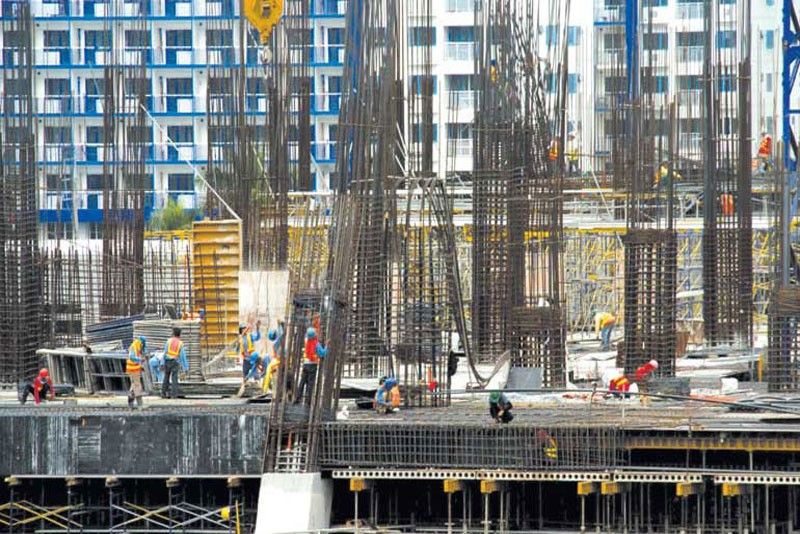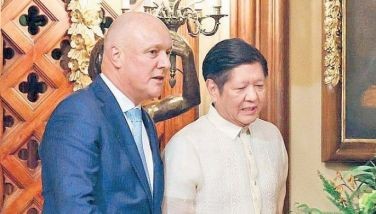US, Japan, Australia launch Asia-Pacific infrastructure financing

MANILA, Philippines — In an apparent attempt to counter China’s Belt and Road Initiative and Washington’s pledge to “oppose” any country that attempts to dominate the Asia-Pacific (or Indo-Pacific), the United States, Japan and Australia will consult with governments in the region, including the Philippines, for identification of projects for financing under the new Trilateral Partners infrastructure fund that will avoid “unsustainable debt burdens.”
In a joint statement of the governments of the US, Australia and Japan sent yesterday by the US embassy in Manila, the three nations said the Trilateral Partnership seeks to be a force-multiplier in the Indo-Pacific, providing a new vehicle through which countries in the region can coordinate to advance their infrastructure priorities.
The three governments said the Trilateral Partnership intends to work with governments of the Indo-Pacific to support and encourage infrastructure projects that “adhere to international standards and principles for development, including openness, transparency and fiscal sustainability.”
“This approach will help meet the region’s genuine needs while avoiding unsustainable debt burdens for the nations of the region,” the statement said.
The governments of the US, Australia and Japan have formed a Trilateral Partnership to mobilize investment in projects that drive economic growth, create opportunities and foster a free, open, inclusive, prosperous and secure Indo-Pacific.
“The Trilateral Partnership intends to consult with governments of Indo-Pacific countries to identify infrastructure projects for potential development and financing,” the statement said.
In consultation with investors and infrastructure companies, the Trilateral Partners will evaluate priority infrastructure projects for possible joint development and financing, and consider sending trilateral project identification and pre-feasibility missions to work through a deliberative process with regional governments to develop specific project proposals.
“These announcements, together with the underlying memorandum of understanding (MOU), represent a substantial new commitment from Australia, Japan and the US to the economic development of the Indo-Pacific through principles-based, sustainable investment in infrastructure,” the statement said.
In the lead-up to the 2019 G20 Summit in Osaka, the US, Japan and Australia intend to work with other members of the G20 to promote quality infrastructure development.
On Nov. 12, Australia’s Department of Foreign Affairs and Trade (DFAT) and Export Finance and Insurance Corp. (EFIC), the Japan Bank for International Cooperation (JBIC) and the US Overseas Private Investment Corp. (OPIC) signed an MOU to operationalize the Trilateral Partnership for Infrastructure Investment in the Indo-Pacific announced in Washington on July 30.
Through the MOU, the three governments vowed to work together to mobilize and support the deployment of private sector investment capital to deliver major new infrastructure projects, enhance digital connectivity and energy infrastructure, and achieve mutual development goals in the Indo-Pacific.
Australia and Japan joined forces with the US to create a scheme for investing in countries across Asia and the Pacific in an apparent attempt to counter the growing influence of China and its Belt and Road Initiative could involve as much as £760 billion of spending over the next decade.
US Secretary of State Michael Pompeo promised a new era of engagement and pledged to “oppose” any country that attempted to dominate the Asia-Pacific, or Indo-Pacific, region.
Pompeo said the US had earmarked $113 million to spend on infrastructure in the Indo-Pacific.
The US warned that China’s Belt and Road seems to want to define its own rules and norms.
In his comment on why the US is opposed to China’s Belt and Road, US Defense Secretary James Mattis said that the US and the rest of the world have many belts and many roads, and no one country gets to decide what they are.
“So, a free and open Indo-Pacific means all countries have access to continue their economic development and free access for trade through the region,” Mattis said.
He noted that the BRI also “goes through disputed territory, and I think that in itself shows the vulnerability of trying to establish that sort of a dictate.”
- Latest
- Trending



























